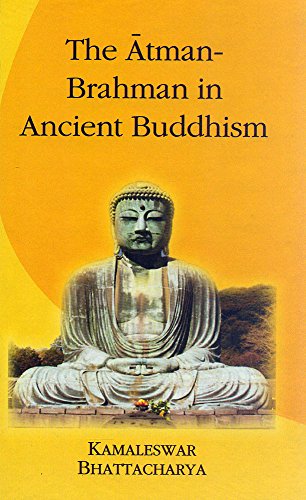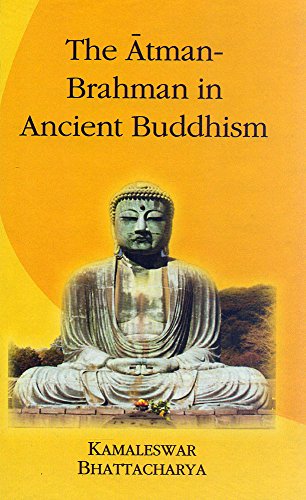The Atman-Brahman in Ancient Buddhism
![]() 100% Genuine New Books
100% Genuine New Books
![]() Fast Shipping with Tracking Number
Fast Shipping with Tracking Number
Secure Payments via UPI, Cards & Wallets
![]() Trusted Support & Easy Returns
Trusted Support & Easy Returns
The Atman-Brahman in Ancient Buddhism - Hardcover is backordered and will ship as soon as it is back in stock.
ISBN : 9788120840652, 8120840658
Year of Publication : 2017
Edition : 1st
No. of Pages : 272
Language : English
Condition : New
Publisher: Motilal Banarsidass Publishing House
Free shipping on orders over Rs. 249
Free shipping on orders over Rs. 249
We offer free shipping on orders above Rs. 249 in India. For orders below this threshold, a nominal shipping fee may apply, which will be clearly indicated during the checkout process.
How long will it take to receive my order?
How long will it take to receive my order?
The delivery time varies depending on your location. Generally, orders are processed and shipped within 1-3 business days. Once shipped, you can track and expect your order to arrive within 3-7 business days (the duration may vary depending on your location). For more information, please refer to our shipping policy.
Chat with a Real Person
Chat with a Real Person
WhatsApp chat is dedicated to assisting with after-sales queries regarding delivery, returns, and payments. Click below to initiate chat with us on WhatsApp:
[Bookstaa WhatsApp Chat].
For all other inquiries, please visit our customer support page or email us at support@bookstaa.com.
Couldn't load pickup availability
Description
Description
About the Book:
The thesis of this book is epoch-making. While no one doubts that the Buddha denied the atman, the self, the question is: Which atman? Buddhism, as understood in the modern era, has taken this to be the universal atman taught in the Hindu Upanisads, equivalent to brahman. What we find in the Buddha's words as recorded in the Buddhist scriptures, however, is only a denial of any permanent self in the ever-changing aggregates that form a person. In decades of teaching, the Buddha had many opportunities to clearly deny the impersonal universal atman if that was his intention. He did not do so.The most serious objection to Kamaleswar Bhattacharya's thesis that the Buddha did not deny the universal atman may be put in the form of this question: Why, then, did Buddhists down through the ages think he did? Reply: Actually, they did not think this, as far as we can tell from their writings that refute the atman and teach the anatman or no-self doctrine. The idea of the atman as the impersonal universal atman did not become dominant in India until some time after the eighth century C.E. Before then, throughout the Buddhist period, the dominant idea of the atman in India was that of a permanent personal atman. Judging from their writings, the Indian Buddhist teachers from Nagarjuna to Aryadeva to Asanga to Vasubandhu to Bhavya to Candrakirti to Dharmakirti to Santaraksita thought that the Buddha's anatman teaching was directed against a permanent personal atman.
About the Publisher

Motilal Banarsidass Publishing House (MLBD)
Motilal Banarsidass Publishing House, popularly known as MLBD, is one of the oldest and most prestigious publishing houses in India, established in 1903.
With over a century of legacy, MLBD has been at the forefront of publishing scholarly works in the fields of Indology, Sanskrit, philosophy, religion, spirituality, yoga, Buddhism, and Jainism.
Renowned for its authenticity and academic rigour, MLBD's books are trusted by researchers, scholars, and readers across the globe.
With more than 5,000 titles in circulation, MLBD continues to uphold its commitment to preserving and promoting India’s rich cultural and philosophical heritage.
Bookstaa is an authorized distributor of MLBD books, ensuring 100% genuine and original publications for our readers.

